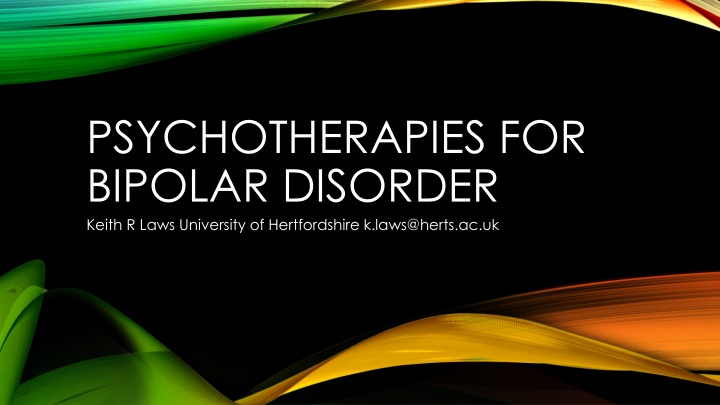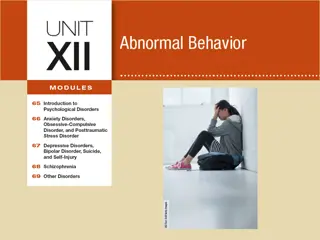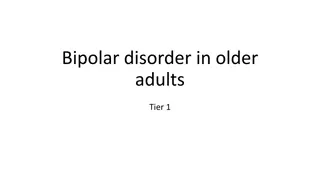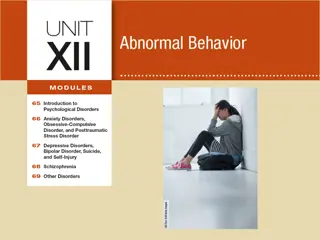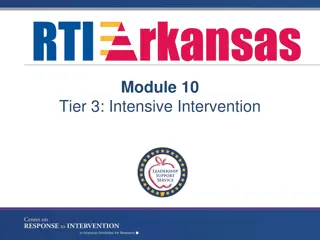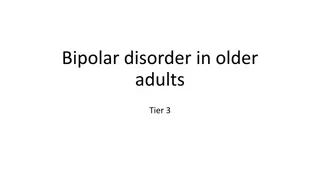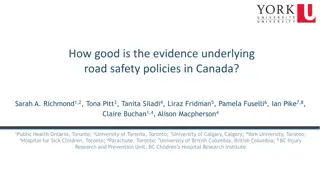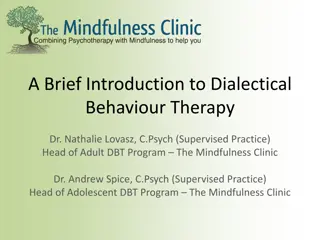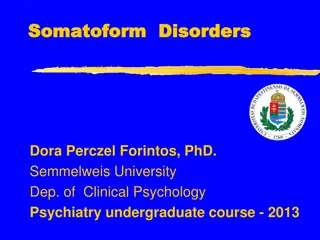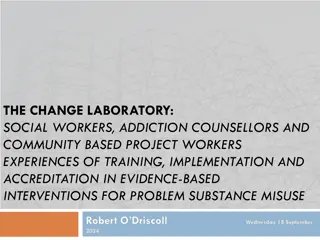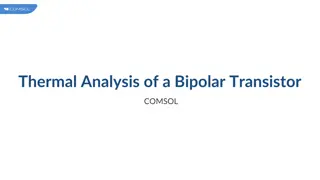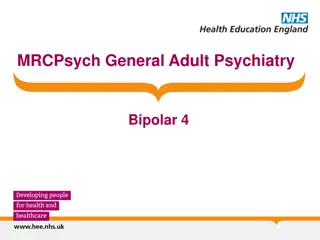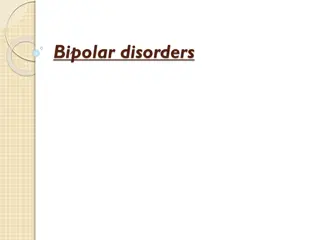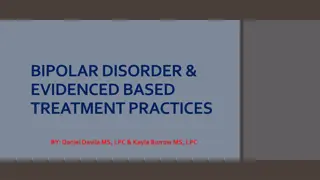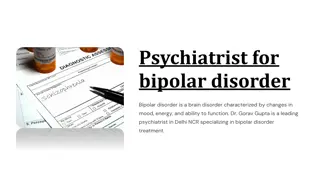Psychotherapies for Bipolar Disorder - Evidence-Based Interventions
This content discusses psychotherapies for bipolar disorder, including managing bipolar depression and evidence-based manuals. It emphasizes the importance of psychological interventions tailored for bipolar disorder to effectively reduce relapse and manage symptoms. The content also highlights the limitations of current depression categories in treatment plans.
Uploaded on Sep 14, 2024 | 0 Views
Download Presentation

Please find below an Image/Link to download the presentation.
The content on the website is provided AS IS for your information and personal use only. It may not be sold, licensed, or shared on other websites without obtaining consent from the author.If you encounter any issues during the download, it is possible that the publisher has removed the file from their server.
You are allowed to download the files provided on this website for personal or commercial use, subject to the condition that they are used lawfully. All files are the property of their respective owners.
The content on the website is provided AS IS for your information and personal use only. It may not be sold, licensed, or shared on other websites without obtaining consent from the author.
E N D
Presentation Transcript
PSYCHOTHERAPIES FOR BIPOLAR DISORDER Keith R Laws University of Hertfordshire k.laws@herts.ac.uk
MANAGING BIPOLAR DISORDER IN PRIMARY CARE (AND ADULTS IN SECONDARY CARE) 8.3.1.1 Offer people with bipolar depression: a psychological intervention that has been developed specifically for bipolar disorder and has a published evidence-based manual* describing how it should be delivered .or a high-intensity psychological intervention (CBT, interpersonal therapy or behavioural couples therapy) in line with recommendations 1.5.3.1 1.5.3.5 in the NICE clinical guideline on depression.
EVIDENCE-BASED MANUAL? This is defined as being based on at least one RCT published in a peer review journal showing effectiveness on depression symptoms in bipolar depression or in long-term treatment to reduce relapse in people with bipolar disorder.
MANAGING BIPOLAR DISORDER IN PRIMARY CARE (AND ADULTS IN SECONDARY CARE) 8.3.1.1 Offer people with bipolar depression: a psychological intervention that has been developed specifically for bipolar disorder and has a published evidence-based manual* describing how it should be delivered .or a high-intensity psychological intervention (CBT, interpersonal therapy or behavioural couples therapy) in line with recommendations 1.5.3.1 1.5.3.5 in the NICE clinical guideline on depression.
NICE ON DEPRESSION 2007 the most significant limitation is with the concept of depression itself. The view of the Guideline Development Group is that it is too broad and heterogeneous a category, and has limited validity as a basis for effective treatment plans.
